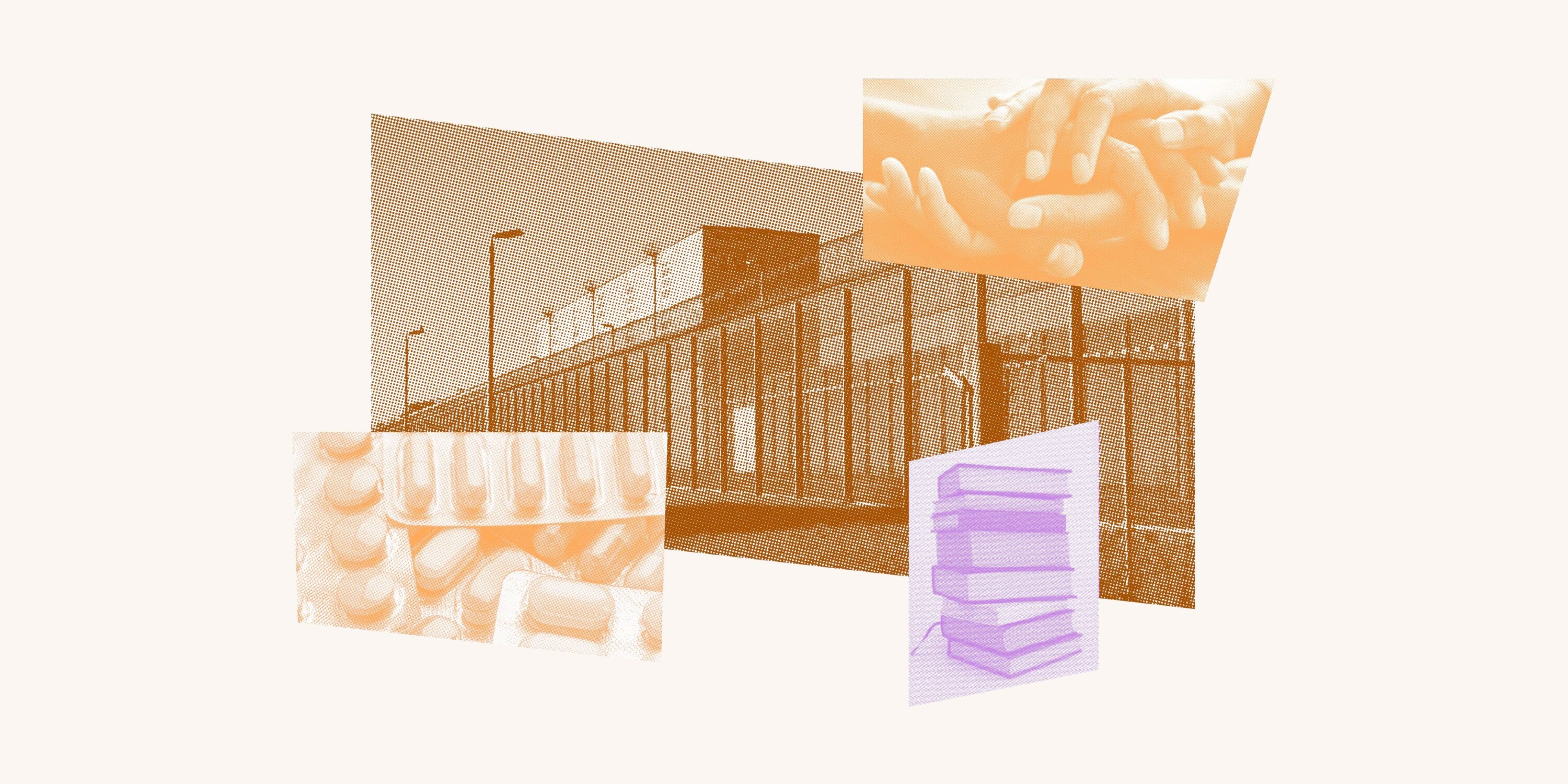Solitary Confinement
The ACLU works in courts, legislatures, and communities to defend and preserve the individual rights and liberties that the Constitution and the laws of the United States guarantee everyone in this country.

The Latest
-


Ahead of U.S. Senate Hearing on Solitary Confinement, Survivors of Solitary Confinement & Allies Rallied to Urge President Biden and Congress to Enact the End Solitary Confinement Act
-

Arizona Violated the Rights of Incarcerated People for More Than a Decade. That Will Finally End.
-

Federal Judge Finds Arizona’s Prison Health Care Is "Plainly Grossly Inadequate" and Unconstitutional
-

What if Algorithms Worked For Accused People, Instead of Against Them?
Explore More
What's at Stake
Across the country, states are waking up to the fact that we must address our overreliance on solitary confinement. Long-term isolation costs too much, does nothing to rehabilitate prisoners, and exacerbates mental illness - or even causes it in prisoners who were healthy when they entered solitary. Officials in some states that formerly relied heavily on solitary confinement are now realizing that they should use public resources on proven policies that promote safe communities and fair treatment, and are successfully reducing the use of solitary - at the same time saving their states millions and reducing violence in the prisons. It's time for more states, and the federal Bureau of Prisons, to follow suit.
Over the last two decades corrections systems have increasingly relied on solitary confinement as a prison management tool – even building entire institutions called “supermax prisons” where prisoners are held in conditions of extreme isolation, sometimes for years or decades. But solitary confinement jeopardizes our public safety, is fundamentally inhumane and wastes taxpayer dollars. We must insist on humane and more cost-effective methods of punishment and prison management.
View Resources
<!--
At this moment, tens of thousands of men, women, and children across the country are locked in solitary confinement for days, weeks, years—even decades. In the past 30 years, the United States has dramatically expanded its use of solitary confinement, even creating new “supermax” prisons designed to hold entire prison populations in extreme isolation.
Solitary confinement, in which prisoners are locked in a cell for 22, 23, or even 24 hours a day with little human interaction or environmental stimulation, is widely recognized as inhumane. It also costs two to three times more than regular prison housing, and studies demonstrate that solitary confinement actually jeopardizes public safety by increasing the risk that prisoners will reoffend after release. Solitary confinement inflicts enormous human costs on our communities, yet the United States continues to warehouse tens of thousands of people in isolation.
Decades of research demonstrates that solitary confinement exacerbates existing mental illness and causes adverse physiological and psychological effects in formerly healthy individuals. International human rights experts recognize solitary confinement as akin to torture, citing research showing that its effects can be similar to those of physical torture. These effects are more pronounced in vulnerable populations, such as children and individuals with mental illness, yet these groups are routinely placed in solitary confinement, often for their own “protection.” The toxic conditions in solitary confinement units have led to extremely high rates of self-harm and self-mutilation; the vast majority of prisoner suicides occur in isolation units.
Across the country, government officials and the public are waking up to the fact that we must address our overreliance on solitary confinement. Officials in some states that formerly relied heavily on solitary confinement are now realizing that they should use public resources on proven policies that promote safe communities and fair treatment; they are successfully reducing the use of solitary, saving their states millions of dollars and reducing prison violence at the same time. It’s time for every state and local government and the Federal Bureau of Prisons to follow suit. Join us in our campaign to Stop Solitary.
-->
Across the country, states are waking up to the fact that we must address our overreliance on solitary confinement. Long-term isolation costs too much, does nothing to rehabilitate prisoners, and exacerbates mental illness - or even causes it in prisoners who were healthy when they entered solitary. Officials in some states that formerly relied heavily on solitary confinement are now realizing that they should use public resources on proven policies that promote safe communities and fair treatment, and are successfully reducing the use of solitary - at the same time saving their states millions and reducing violence in the prisons. It's time for more states, and the federal Bureau of Prisons, to follow suit.
Over the last two decades corrections systems have increasingly relied on solitary confinement as a prison management tool – even building entire institutions called “supermax prisons” where prisoners are held in conditions of extreme isolation, sometimes for years or decades. But solitary confinement jeopardizes our public safety, is fundamentally inhumane and wastes taxpayer dollars. We must insist on humane and more cost-effective methods of punishment and prison management.
View Resources
<!--
At this moment, tens of thousands of men, women, and children across the country are locked in solitary confinement for days, weeks, years—even decades. In the past 30 years, the United States has dramatically expanded its use of solitary confinement, even creating new “supermax” prisons designed to hold entire prison populations in extreme isolation.
Solitary confinement, in which prisoners are locked in a cell for 22, 23, or even 24 hours a day with little human interaction or environmental stimulation, is widely recognized as inhumane. It also costs two to three times more than regular prison housing, and studies demonstrate that solitary confinement actually jeopardizes public safety by increasing the risk that prisoners will reoffend after release. Solitary confinement inflicts enormous human costs on our communities, yet the United States continues to warehouse tens of thousands of people in isolation.
Decades of research demonstrates that solitary confinement exacerbates existing mental illness and causes adverse physiological and psychological effects in formerly healthy individuals. International human rights experts recognize solitary confinement as akin to torture, citing research showing that its effects can be similar to those of physical torture. These effects are more pronounced in vulnerable populations, such as children and individuals with mental illness, yet these groups are routinely placed in solitary confinement, often for their own “protection.” The toxic conditions in solitary confinement units have led to extremely high rates of self-harm and self-mutilation; the vast majority of prisoner suicides occur in isolation units.
Across the country, government officials and the public are waking up to the fact that we must address our overreliance on solitary confinement. Officials in some states that formerly relied heavily on solitary confinement are now realizing that they should use public resources on proven policies that promote safe communities and fair treatment; they are successfully reducing the use of solitary, saving their states millions of dollars and reducing prison violence at the same time. It’s time for every state and local government and the Federal Bureau of Prisons to follow suit. Join us in our campaign to Stop Solitary.
-->
